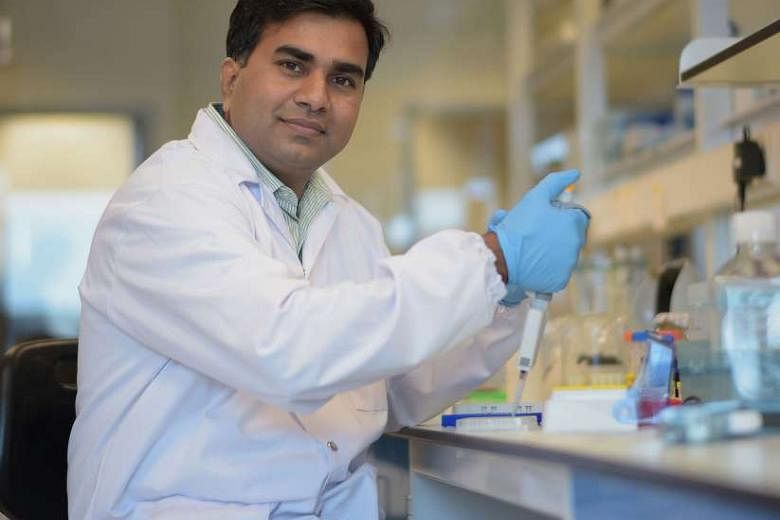A novel invention by scientists at the Agency for Science, Technology and Research (A*Star) can help to halve the cost of drug discovery, and in developing vaccines.
A*Star spin-off ACM Biolabs has developed an artificial cell membrane technology made of polymers - synthetic materials, including plastics. This saves time and money for scientists who are often bogged down by the tedious process of culturing live cells for drug testing.
Cell membranes contain proteins which are involved in disease mechanisms. These proteins could, for instance, help a tumour to grow in size. This is why drugs are often targeted at them.
The idea to create artificial cell membranes is the brainchild of Dr Madhavan Nallani, founder and chief executive officer of ACM Biolabs. Dr Nallani told The Straits Times that membrane proteins could also be custom-made to suit the kinds of drugs which scientists are looking to test.
"Everyone wants to develop drugs against membrane proteins, but they are difficult to work with. That's why some companies don't even want to start the project. But with our technology, they can get access to this," said Dr Nallani.
The 39-year-old started working on artificial cell membranes when he was doing his PhD in biochemical engineering at the Jacobs University in Germany in 2005.

Three years later, he joined A*Star's Institute of Materials Research and Engineering, where he continued to build on his work.
The company was set up only in 2013, but the start-up has already attracted clients from big pharmaceutical companies. Dr Nallani said that the company is profitable at this point, without going into details.
"I always had the passion to translate what we are doing and that is the key driver to get this going. Otherwise, you wouldn't be focusing on immediate needs; you would be developing a lot of knowledge, but that has to be translated as well," he said.
The company is also in talks with animal health company Sanphar Asia to co-develop a vaccine against the porcine epidemic diarrhoea (PED) virus in pigs. Vaccines currently available against PED, which is a serious problem in many countries including those in South-east Asia, are only partially effective at best.
The coronavirus occurs only in pigs and causes severe outbreaks of diarrhoea that transmit rapidly.
Dr Nallani said his company has been able to produce a "viral mimic" using its artificial membrane technology.
Successful trials have been conducted on pigs in Thailand and it was shown to have triggered an antibody immune response in the animals, protecting them from the viral infection.


